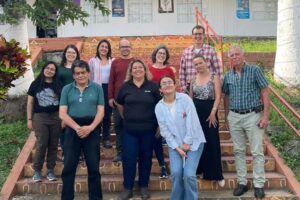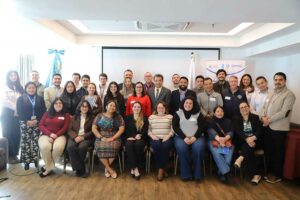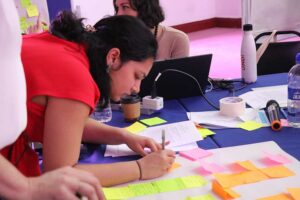Technical staff strengthens capacities for the implementation of rainwater harvesting systems in reservoirs in municipalities of the Trifinio Region
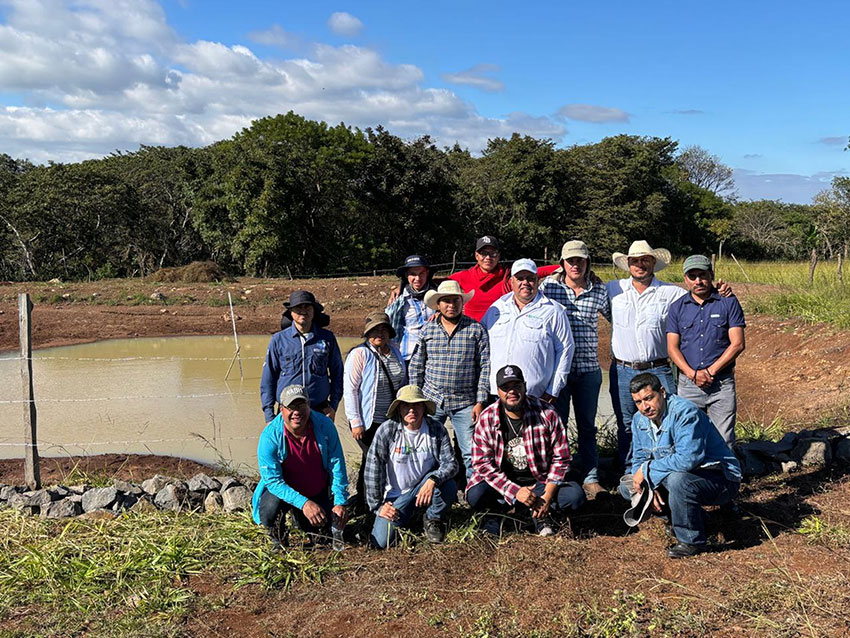
- This course aims to train technical field personnel who advise farming families to promote the establishment and use of rainwater harvesting systems by capturing runoff in reservoirs.
The ESCALAR project “Scaling climate change adaptation solutions for resilience and migration reduction in the Central American Dry Corridor”, led by CATIE (“Tropical Agricultural Research and Higher Education Center”) and funded by the Embassy of Sweden under the Winrock - USAID Upper Lempa River Watershed Project grant, is providing the course “Integrated management of rainwater harvesting systems through the collection of natural runoff in reservoirs for productive purposes” in the Trifinio Region.
This course seeks to improve the knowledge and technical skills of local personnel to promote and develop rainwater harvesting systems by collecting rainwater in reservoirs with natural waterproofing.
It is aimed at people from the Trifinio Region with engineering studies in civil sciences, local professionals in agricultural, environmental, forestry, livestock, rural development or related careers, as well as municipal personnel in charge of maintenance and development of drainage infrastructure or in support of the development of productive infrastructure related to the subject of this course.
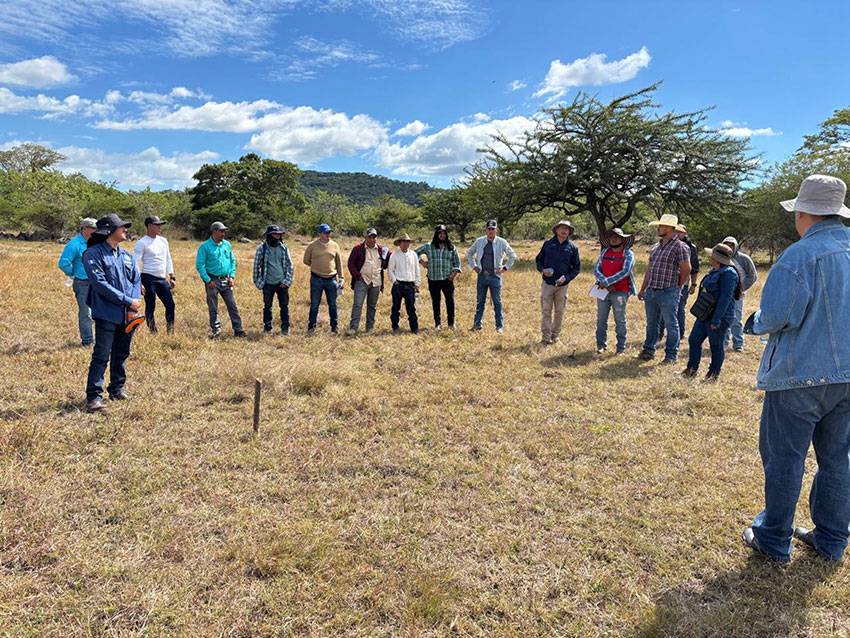
The first training of this course was virtual and the module “Design and Supervision of Reservoirs” was delivered for Guatemala and Honduras on November 18, 2024, while for El Salvador it took place one day later. In this session, participants learned about the use of digital tools and biophysical and socioeconomic indicators for the identification and selection of sites for the construction of reservoirs with natural waterproofing.
As part of this course, a theoretical-practical workshop with field reinforcement was also planned, to be replicated in Guatemala, El Salvador and Honduras, addressing the following topics: design and construction processes of reservoirs; potential agricultural or livestock uses of rainwater harvested in reservoirs; preparation of water budgets according to the volumetric or storage capacity of the reservoirs for irrigation use; and design and management of low-pressure gravity-operated irrigation systems.
In addition, national training is planned for people who could act as supervisors for the design and construction of reservoirs in the territory, as well as the development of exchange events with technical personnel in the field and producer families on this topic.
The Upper Lempa River Watershed Project grant, in order to improve water security in the region, has identified actions for farmers in the municipalities of interest to adapt to climate change by using rainwater runoff collection structures or water harvesting reservoirs, as part of efforts to improve integrated water resource management in the region with local stakeholders.
The effective implementation of water harvesting technologies contributes to the sustainable management of natural resources, protects water recharge zones, water supply and biodiversity conservation in the Upper Lempa River Basin as stipulated in the grant awarded by Winrock - USAID to the ESCALAR project, executed by CATIE.
Written by:
Patricia Orantes
Development Communication Specialist
ESCALAR Project - CATIE
patricia.orantes@catie.ac.cr

